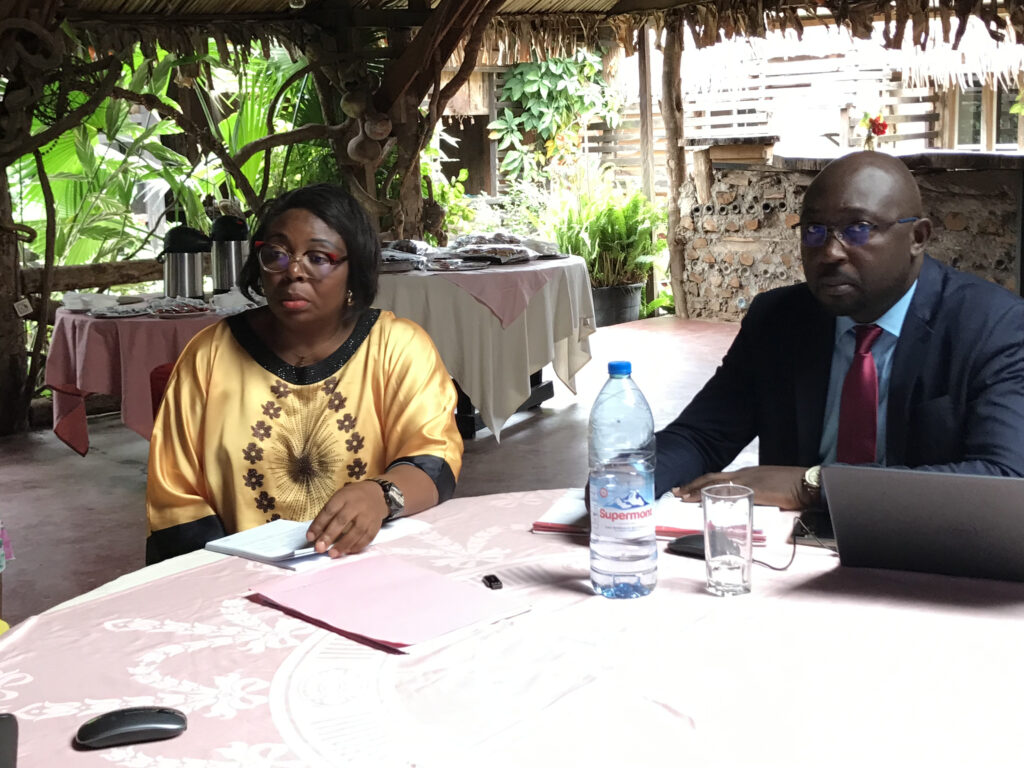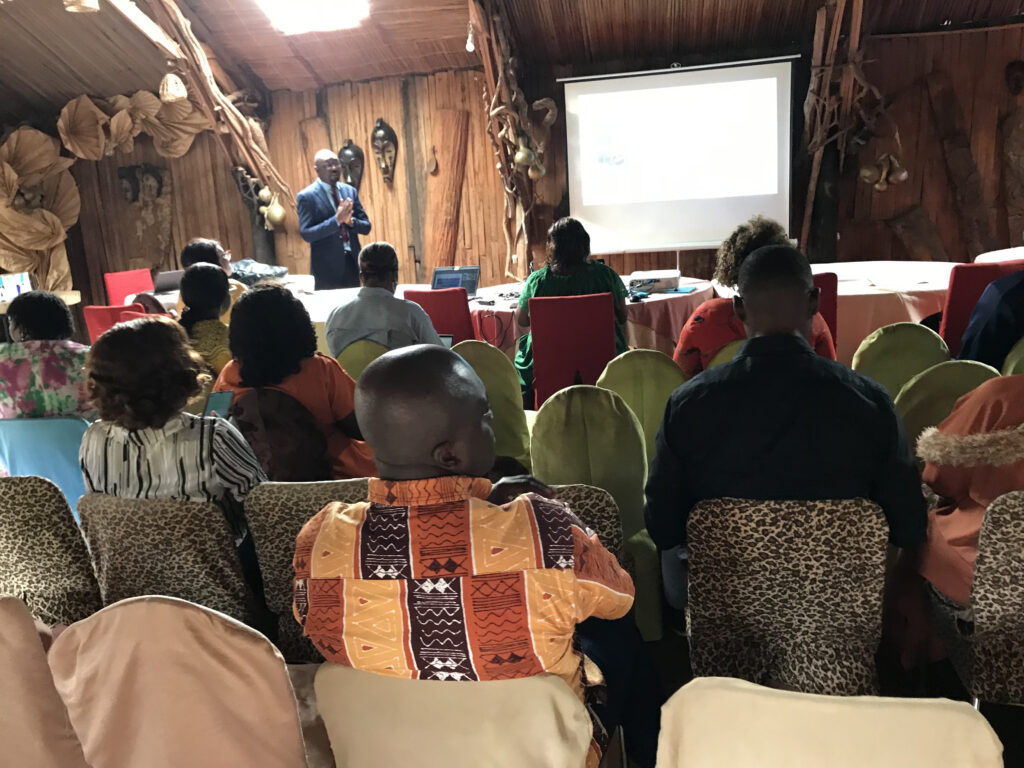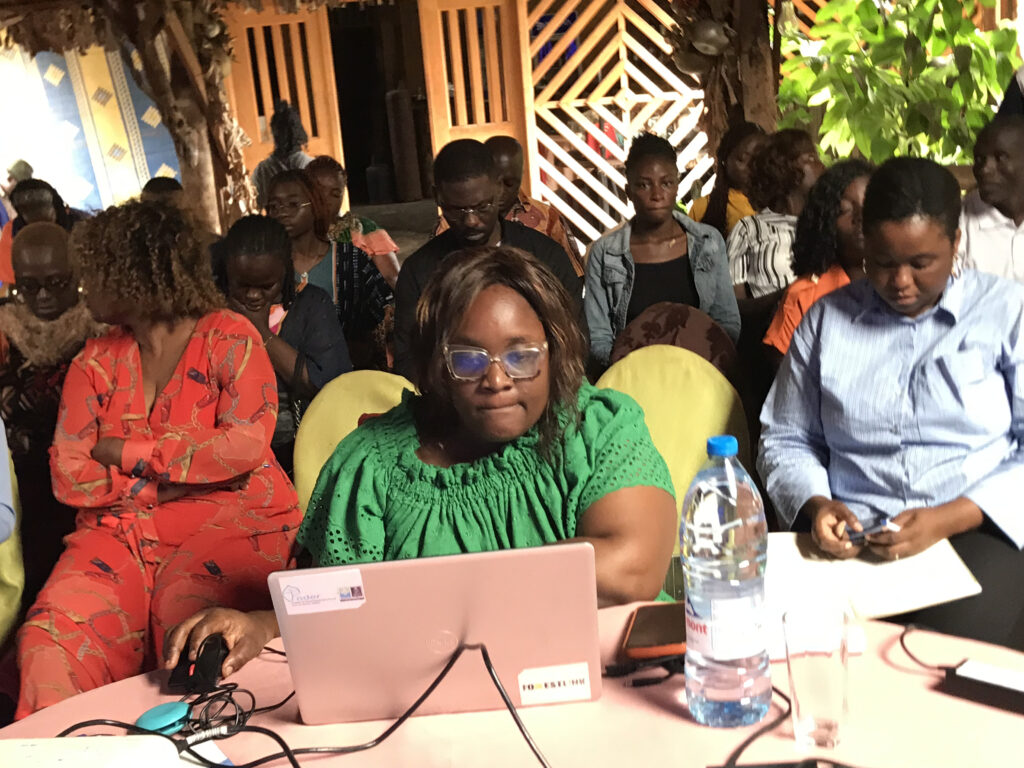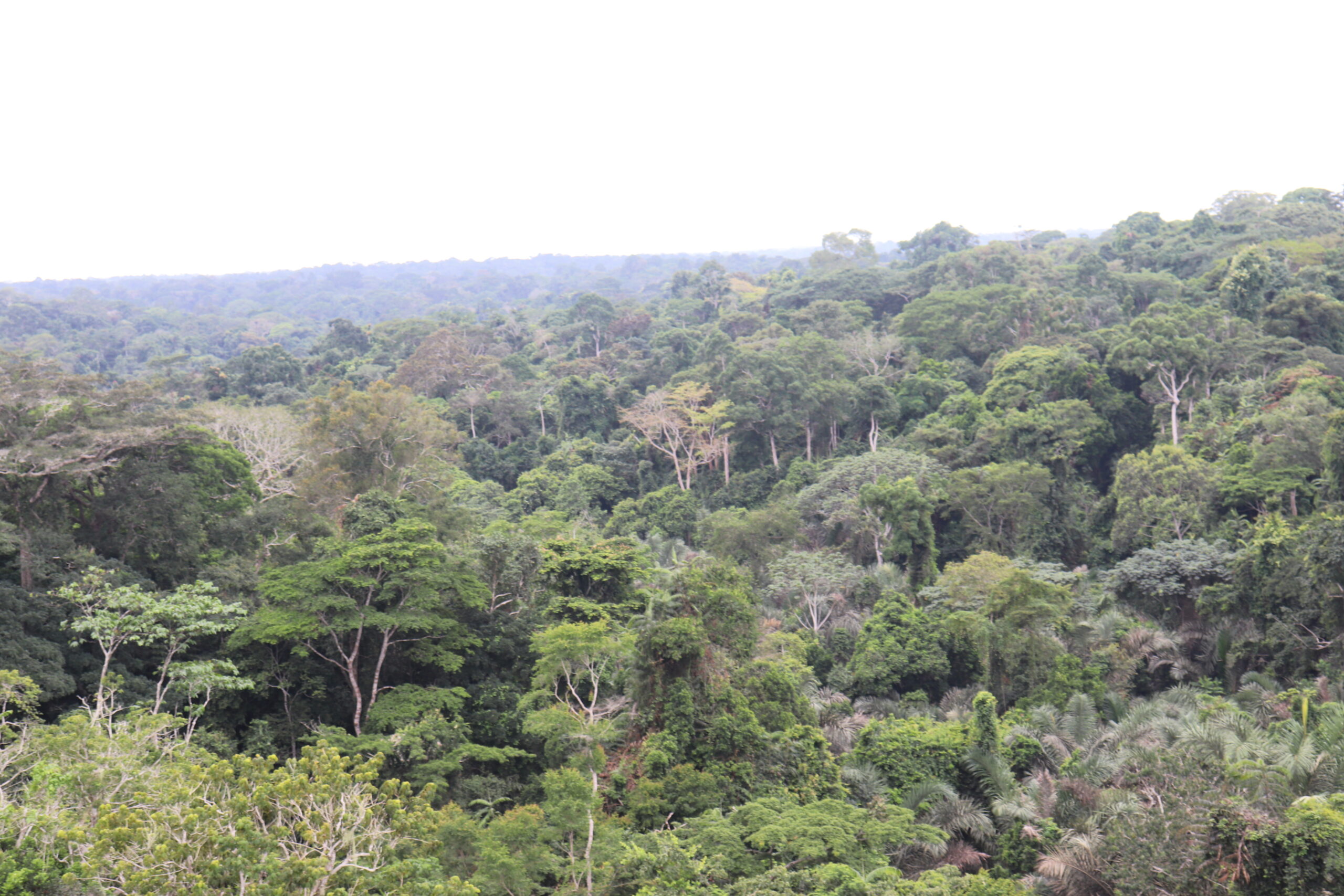By Leocadia Bongben
After a ten-year absence, the Independent Forest Monitoring, coordinated by the World Resource Institute in Cameroon, has returned with stark revelations about illegal logging in the country.
Foret et Development Rural, FODER, which is part of the monitoring platform ‘Normalized System of External Independent Monitoring,’ by its French acronym, SNOIE, revealed that the Mbam and Kim, Haut Nyong, Ocean, Sanaga Maritime, and Mvila divisions are hotspots of illegal logging. According to statistics, illicit logging caused Cameroon to lose almost 12,000 hectares between 2022 and 2024.
FODER revealed the information as a guest speaker at a Café Science at Rue Case Negre, a regular event of the Association of Science Journalists and Communicators, SciLife.
Presenting the statistics, Angeline Modjo maintained that some of the irregularities observed were logging beyond the limits of legally allocated titles, unauthorized logging in national forests, logging without approval from the forestry profession, failure to comply with technical logging standards, under-diameter cutting, and failure to mark stumps, logs, and the base of the crown. Noncompliance with logging standards in the forest environment (obstruction of watercourses, abandonment of timber, logging on slopes, logging less than 30 m from watercourses, production of sawn timber in legally allocated titles without specific prior authorization from MINFOF and the owner of the title, fraud on logging documents issued by the administration, unauthorized logging in state forests, including in protected areas, and noncompliance with management plans for communal forests).

Governance lapses observed include cases of complicity in illegal logging by certain local authorities and members of local communities. Inadequate staffing, equipment, and materials at forest control posts to cover the entire area of forests under control. Cases of tension and conflict between communities and the operator (blocking of logging trucks’ exit route) relating to the non-respect of social commitments. Destruction of fields by logging, recidivism in illegal logging, cases of handling stolen goods, circulation of unmarked logs, conflicts of interest, and abuse of authority.
From 2022 to 2024, SNOIE had 25 field trips in 5 regions: the Centre region, the Mbam and Kim department (Yoko and Ngambé-Tikar districts); the Littoral region, the Sanaga maritime department (Ngwei and Pouma districts); the South region, the Ocean division (Akom2, Kribi 1st, 2nd, and Lokoundjé districts) and the Mvila division (Biwong-Bulu, Mvangan, Ebolowa 1st and 2nd districts); and the East region, specifically in the Haut-Nyong division (Messamena, Abong Mbang, and Mindourou districts).
The result of the monitoring shows that between 2022 and 2024, the cases of logging documented in the SNOIE zones have led to significant presumed financial losses for the State of Cameroon, estimated at 91,744,760 FCFA (Haut Nyong), 47,208,953 FCFA (Mbam and Kim), and 306,181,027 FCFA (Sanaga maritime, Océan, and Mvila), a total of 445 million.

The reports were forwarded to MINFOF, and some that indicated non-compliance with environmental standards were forwarded to MINEPDED along with letters of denunciation. MINEPDED coordinated 16 verification missions, including 5 joint missions, using agents from the Center, South, East, and Littoral Regional Control Brigades (BRCs). After receiving the reports, the South divisional delegation of MINEPDED conducted one control mission, which resulted in 15 seizures, four administrative summonses, and four official statements of offense prepared against the offenders. Meanwhile, MINFOF, for its part, has sanctioned offenders.
Justin Kamga, the coordinator for FODER, insisted that their work in the forest sector has been to detect illegalities and to push respect for the law.
According to Achille Djeago, the World Resources Institute is coordinating the independent forest monitoring in Cameroon and offering alternatives for openness in the forestry industry.

The Program for the Amelioration of Governance in the Forest Sector (PAMFOR3), an initiative of the European Union, provides funding for forest monitoring. Through the execution of APV FLEGT, the Voluntary Partnership Agreement (VPA) for Trade, Governance, and Forest Law Enforcement, PAMFOR aims to improve the governance of natural forest resources. The European Union (EU) and timber-exporting countries signed a trade agreement to ensure that timber imported into the EU comes from legal sources.


